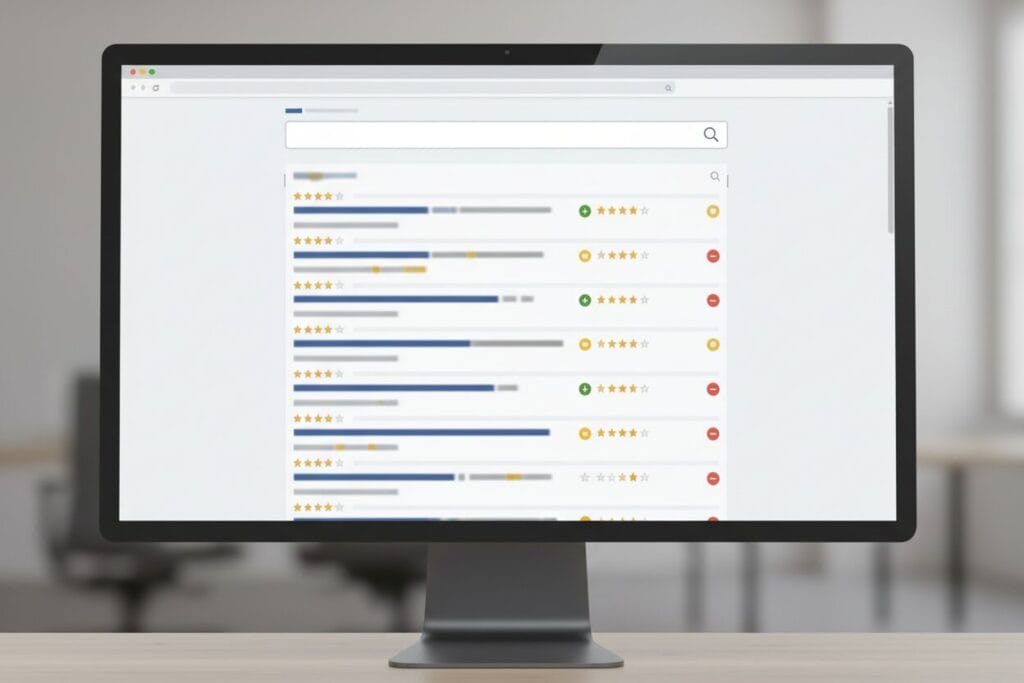Nothing kills admissions faster than a damaged reputation. One negative review, one old article, or one angry parent post can shut down trust before a family ever reaches out.
Programs rarely lose admissions because they’re “not visible enough.” They lose admissions because parents find something online that makes them hesitate—and hesitation is fatal in this industry.
Reputation Problems Destroy Admissions Long Before You Ever Hear From a Parent
This is the part most programs underestimate. A parent doesn’t need a lot of bad press to walk away. They need one thing that feels unsafe. One Reddit post. One outdated article. One unresolved complaint.
Parents don’t gamble with their kids. If something feels off—even slightly—they choose someone else.
This is why “reputation repair for residential treatment centers” is not optional—it’s foundational. Your admissions team is often losing families before the phone ever rings.
The Types of Reputation Damage Programs Face
Reputation issues usually fall into a few predictable categories:
- Negative Google reviews (false, outdated, or misleading)
- Parent complaints on forums (Reddit, Facebook groups, blogs)
- Online attacks from activists or former students
- Old news articles resurfacing
- Competitor whisper campaigns or bad-mouthing

What You Can Remove (And What You Can’t)
You can remove a lot more than most programs realize. Platforms allow removal for:
- False statements presented as fact
- Reviews from people who never had contact with your program
- Harassment, coordinated attacks, or hate speech
- Doxxing or identifying minors
- Reviews violating platform policies (Google, Facebook, BBB)
But here’s the hard truth: some content cannot be removed. When that’s the case, the strategy changes—not to erase it but to bury it, contextualize it, and build stronger trust signals around it.
If you want the step-by-step on removal rules, it’s here:
How to Remove Negative Reviews.
How Negative Content Impacts Parent Decision-Making
When parents see negative content, their brain goes into self-protection mode. They think:
- “This might be dangerous.”
- “There are safer options.”
- “If something happened to someone else, it could happen to us.”
It doesn’t matter if the post is biased, out of context, or written by someone who wasn’t even part of your program. Perception becomes reality.
Parents judge your program by the worst thing they can find about you online.
Repairing the Damage the Right Way
Effective reputation repair for residential treatment centers follows a three-layer process:
1. Remove what can be removed
False, misleading, or policy-violating reviews and content can often be taken down.
2. Suppress what cannot be removed
When content is unremovable, the strategy shifts to pushing stronger, verified content above it in search results—interviews, parent stories, transparency pages, and expert content.
3. Rebuild trust with transparency
Parents respond to honesty—not perfection. Programs that show:
- how they handle mistakes
- how they resolve concerns
- how they protect kids
- how they communicate with families
outperform those who try to hide behind PR language or overly polished messaging.
What Not to Do (The Mistakes Programs Make)
Programs often make their reputation problems worse by:
- Ignoring negative content and hoping it goes away
- Responding defensively or emotionally
- Posting templated, corporate-sounding replies
- Threatening reviewers publicly
- Trying to drown out negative content with generic marketing noise
Every one of those responses confirms the parent’s fear: “This program is hiding something.”
How Reputation Repair Directly Increases Admissions
When reputation issues are fixed, admissions improve because parents:
- stop getting scared off by outdated or false content,
- trust your explanations more,
- see clearer proof of safety and outcomes,
- feel more comfortable moving forward.
A repaired reputation doesn’t just protect admissions—it accelerates them.
If Your Reputation Is Hurting Your Admissions
The longer negative content sits unaddressed, the more families it repels. You don’t need to panic—but you do need to clean it up.
Schedule a Reputation Repair Review
Or start with the removal basics here: How to Remove Negative Reviews.












